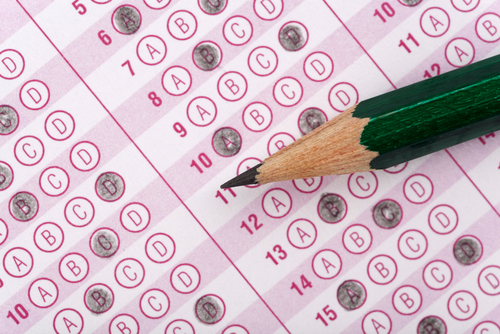#AppellateTwitter lawyers chat, help one another and even develop business

Photo Illustration by Sara Wadford/Shutterstock
#AppellateTwitter may not be quite as convivial as the bar “where everybody knows your name,” but members of the appellate bar like to gather at the online Twitter community just the same.
There’s almost nothing that can’t be discussed on #AppellateTwitter, it’s open 24/7, and lawyers can visit in their bathrobe or gym shorts. For members of a legal discipline who often keep long hours away from their colleagues, it’s a break in the day and an opportunity to communicate with others in their shoes.
The group traces its history to a 2016 tweet from Raffi Melkonian, an appellate partner at Wright Close & Barger in Houston. “#AppellateTwitter is having a DC powwow. We provincials will watch from afar,” he wrote on June 8, 2016.
“Appellate is kind of a solo enterprise,” he says. “I joined Twitter specifically looking for appellate people. I wanted to find other practitioners I could talk to, and it worked out.”
The hashtag caught on and has become a community for appellate lawyers looking for help, information or friendship. In recent months, lawyers have taken to #AppellateTwitter to seek help with the rules for amicus briefs in Minnesota state court, post orders of the Texas Supreme Court, discuss getting chastised by a judge, post employment opportunities and catch up with colleagues who have been too busy to post. “I never anticipated there would be a lot of people who would like to meet up and didn’t anticipate that judges would participate, and that’s also been a great thing,” Melkonian says.
“I get excited when I see a new post,” says Chad Ruback, a Dallas-based appellate lawyer who has been solo for the last 14 years. “#AppellateTwitter is a 21st-century version of lawyers mentoring each other. It used to be the lawyer across the hall or the lawyer across town, except you are not limited by geography, so a New York City lawyer can talk to a lawyer in rural Kansas.”
Ruback has served as president of the approximately 3,000-member Dallas Association of Young Lawyers and on the board of directors of the over 11,000-member Dallas Bar Association, so he’s accustomed to being in the public eye. But the appellate practice can be “isolating,” he says.
“You need to close your door for hours at a time to work on a brief,” Ruback says, “and you can spend days at a time without phone calls or face-to-face interactions.” He calls #AppellateTwitter “the best thing to happen to appellate law since electronic filing” and notes that the only downside is that it’s easy to fall down the rabbit hole. “On #AppellateTwitter, we can interact at a time that’s convenient for us. The only downside is that I might log on for a five-minute break, and a half-hour later, I’m still there—it’s addictive,” he says.
#AppellateTwitter member Kristen Vander-Plas, the sole appellate attorney at Davidson Sheen in Lubbock, Texas, says her business has benefited from being visible on #AppellateTwitter. “I can think of five or six cases sent to me by other appellate lawyers that I never would have known about otherwise,” says Vander-Plas, who gets a lot of her appellate-related news from the community.
Samuel Berbano, a federal client manager with Thomson Reuters in Washington, D.C., who trains workers in government agencies to use the company’s legal research tools, says Twitter can be helpful in finding out what research tools people like or would be interested in.
“On #AppellateTwitter, people will offer unsolicited feedback about legal research questions, or they’ll say, ‘I wish there was something that did this,’ ” Berbano says. “So it’s great from a customer service perspective.”
In addition to using the hashtag to keep up on appellate attorney meetups in Washington, Berbano says he likes to “keep up and stay aware of what people are talking about and to communicate with people that I wouldn’t have a chance to meet other than on Twitter.”
Likewise, Sean Marotta, a partner in the Appellate Practice Group at Hogan Lovells in Washington, D.C., appreciates the ability to meet with his fellow practitioners. However, he cautions that “you shouldn’t take advice from anyone on the internet unless they are your attorney.”
Ruback agrees, emphasizing: “It’s important when you are posting on #AppellateTwitter not to betray any client confidences. You wouldn’t want to say anything that could get you in trouble with the state bar, so don’t say anything on Twitter that you wouldn’t say at a state bar luncheon—be judicious. Just because you’re sitting in your pajamas at 11 o’clock, you’re not absolved of your duty of care.”
This article was published in the July-August 2019 ABA Journal magazine with the title "Bar Talk: #AppellateTwitter gives appellate lawyers a chance to chat, help one another and even develop business."



